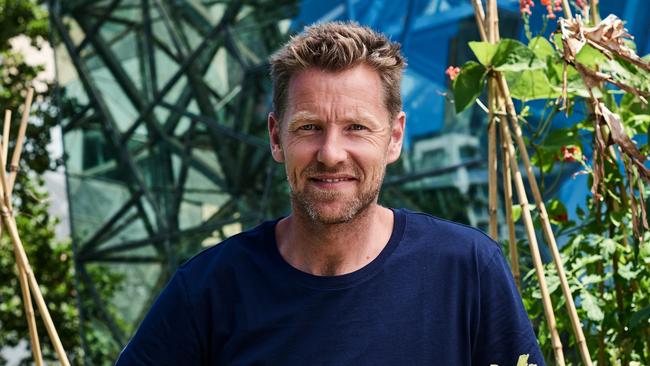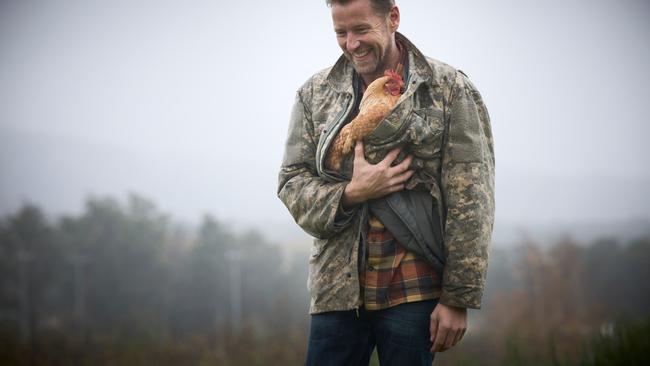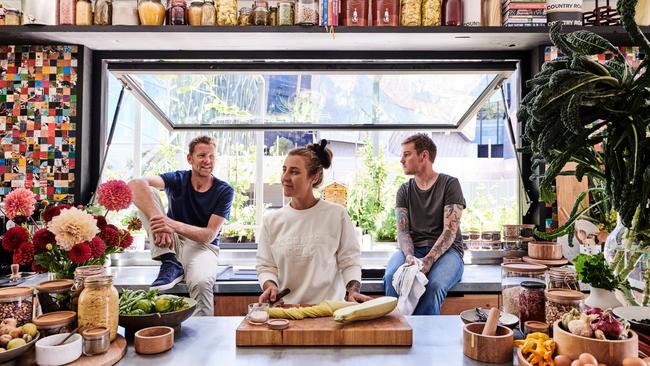'We're going to miss the iceberg' on climate catastrophe
The poster boy for zero waste living has zero time to waste on waiting for corporations and politicians to save the environment.

The poster boy for zero waste living has zero time to waste on waiting for corporations and politicians to save the environment.
Zero-waste warrior Joost Bakker offers optimism we don't offer hear from committed climate activists: "We've shifted the Titanic...we're definitely going to miss the iceberg, that's for sure."
It may be a welcome assessment to the 84% of Gen Z who experience 'climate anxiety', according to a 2021 Lancet study of 10,000 young people from 10 countries including Australia.
For Bakker, a Melbourne based florist, turned hospitality venue creator, turned architect, while the “fear” is real, he has “zero time to waste” reveling in it.

“I feel that humans always need to get to a point where [climate change] is just in your face for them to react. And that's where we are now,” he tells The Oz.
“I think that in 2040, when we look back at this period in time, it'll be like the time where we changed almost everything.”
Bakker became a name synonymous with the environmental movement after constructing his own completely zero-waste home, a self-sustaining structure that provides shelter, food and generates energy within the same walls.
The descendant of Dutch tulip farmers pushed his plight into the hospitality industry, opening the world’s first zero-waste restaurant Silo - renamed Brothl - where fine-diners can feast on award-winning produce, and urine from the bathroom facilities is recycled as fertiliser for mustard seeds.

Most recently, Bakker’s environmental endeavours have been chronicled in the documentary Greenhouse by Joost, tracking the construction of a self-sustaining home, set right in the middle of Melbourne’s CBD.
Though the zero-waste campaigner’s efforts continue to receive global acclaim, he maintains he is still just a florist who wanted to “be the change.”
“I see so many people on earth putting so much energy into trying to convince politicians to change policy or stop corporations and it's like just be the change yourself,” he explains.
With a passion for galvanising the individual and leveraging the power of creativity, the man who has a river system built into his family home to rear carp for consumption stresses “small individual changes” can have enormous effects on the climate.
“Politicians are followers, they always have been and always will be. So if they see the population doing it, going about their way, going about that, if the culture changes, they will change,” he says.
“We don't appreciate the power of the individual and the individual person making a change and then what impact that has on the people that surround you. It's like the ripple effect, really.”
Reflecting on the past few years of environmental disasters that have struck Australia and the world around, Bakker’s optimism shines in the face of traditional doomsday climate narratives.
“As much as I hate to say it, I think that we needed to get to this point to wake everyone up,” he says.
“I think it's like that we've shifted the Titanic, but when you're on it, you don't realise. We're definitely going to miss the iceberg, that's for sure.”
In related news: Anthony Albanese won't be at COP27 - does it matter?


